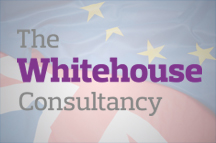.gif) Will we or won’t we (support a transitional arrangement for the Customs Union)?
Will we or won’t we (support a transitional arrangement for the Customs Union)?
The Government sent some decidedly mixed messages on the Customs Union this week. There had been reports Chancellor Philip Hammond had “come to heel” and agreed that the UK would leave the Customs Union once we leave the EU in 2019, contrary to previous reports that he would seek to maintain the current arrangements on a transitional basis. However, the joy felt by the more strident Brexiteers at the news was probably short lived when the Department for Exiting the European Union (DExEU) published a position paper on Tuesday setting out its two future options.
One option being considered is to create "a highly streamlined customs arrangement", where we would leave the customs union but simplify the arrangements to reduce barriers to trade. This could deliver the best of both worlds, or the worst of both worlds, depending on your point of view.
But the option getting the most attention is seeking a “temporary extension” of the current arrangements – formally leaving the Customs Union, but asking the EU for a temporary customs union. Basically, we’d aim for something very similar to the Customs Union, but we wouldn’t call it a Customs Union. Some might wonder if Brexit isn’t mostly about going to a lot of effort to create similar but different versions of the arrangements we already have. Others might wonder if this is even a realistic aim, given the European Commission’s response…
Has anyone told the European Commission?
It certainly seems like the UK has more work to do to get our EU friends on side. The European Parliament’s Guy Verhofstadt was quick to dismiss the idea of a temporary customs union as “a fantasy”. Meanwhile, EU Chief Negotiator Michel Barnier suggested that the UK would need to sort out the exit bill and reach agreement on citizens’ rights the topic could even bring discussed. He was also pessimistic about the prospects for trade being as “frictionless” as it is now, while sitting outside the Customs Union. The EU has a clear interest in making it more attractive to be in the club than outside while enjoying all the benefits – but if they’re keen not to discuss the customs proposals until after other issues have been settled, then that gives the UK some time to think about what leverage it might offer to make the deal more attractive.
Northern Ireland is going to be another headache
It’s clearly been a busy summer for DExEU officials, as they released another position paper this week, covering the thorny issue of the border between Northern Ireland and the Republic. Progress on the Irish border is one of the issues where the Commission has demanded demonstrable progress before actually getting onto discussing the trade and customs issues, so getting this right is pretty important – and also pretty hard to achieve.
Neither Britain, Ireland or the EU wants to see a hard border in place, but having no border between an EU member state and non-member state is quite the ask. Showing some recognition of the difficulty of the task, the Government said that an "unprecedented solution" would be needed. The UK wants there to be no customs posts or other physical infrastructure, as well as an exemption from any new customs tariff for SMEs – or as Irish journalist Fintan O’Toole put it, “the EU gives the UK all the benefits of the customs union and the single market with none of the costs or restrictions.” Assessments of the proposals have ranged from “ambitious” to “absurd”. It’s clear that there’s a large mountain to climb before this one is resolved.
But are we just talking to ourselves?
The flurry of papers published this week has apparently done little to impress the Germans, with SDP Vice-Chancellor Sigmar Gabriel commenting that it appears the UK has “no real strategy” for the negotiations and that many of the UK positions are unrealistic. He said that relations between the respective the negotiating teams were good, but that the lack of strategy made concrete results difficult to achieve. Reflecting similar comments from several other senior politicians in Europe, Gabriel said that it would be unfair on other member states if the UK could leave the bloc while maintaining all the benefits of membership. It certainly feels like much of what has come out of DExEU so far has been aimed at appealing to a UK audience, rather than to understanding and addressing the likely concerns of other EU member states. That’s one thing that’s going to have to change for the UK to achieve a successful deal.
Government refusing to publish studies on 50 sectors of the economy
To add a final challenge for the week, it was alleged by a Green MEP that the Government is hiding studies on the impact of Brexit on 50 sectors of the economy to avoid embarrassment – after a leaked study by the Department of Health suggested it could lead to us being short of 40,000 nurses by 2026.
Following the leak, Molly Scott Cato wrote to Brexit Secretary David Davis to see if she could access studies on the impact on other sectors, but was told that publishing the results could undermine the UK’s negotiating position. It’s understandable that the Government doesn’t entirely want to reveal their weak points before negotiations get under way, but it’s not surprising that this will add to the level of uncertainty and unease about what Brexit will mean for the economy.














